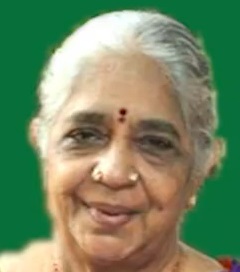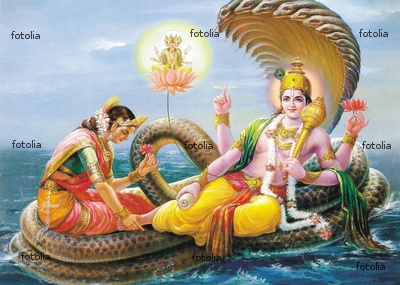
COMPOSER Ambujam Vedantham |
|
|||||||||||||
|
Mrs. Ambujam, born in 1938, the youngest of three children born to K.Padmanabhan and Ranganayaki, started learning singing at the age of 7 from her mother, and went on to train under stalwarts K.T. Srinivasan (founder of Nungambakkam Sangita Vidyalalaya), Muthu Natesa Ayyar, Kallidaikurichi Ramalinga Bhagavathar, Dr. S. Ramanathan and P.P Govindan. She gave her first concert in 1953 in Madras, at the age of 15.
In a life driven by what Mrs. Ambujam delicately terms as ‘family circumstances’, Carnatic music has been perhaps the only constant. In 1952, the young Ambujam stopped schooling after Form 10 at Seva Sadan School, Madras, to look after her mother who had become bed-ridden after getting afflicted by tuberculosis of the spine.
“I tried to complete my matriculation studies from home, but was too young for the Madras board, so I opted for the Andhra board (Telugu was more commonly spoken in the Madras Presidency in the early 1950s). But shortly before I was to attempt the final exams under my father’s tutelage, I was disqualified, because I lacked the minimum one week’s attendance at an Andhra school. So I decided to carry on with my music studies, with home tuition from K.T. Srinivasan,” she recalls.
The teenaged Ambujam made a confident debut because of the earlier exposure to a variety of performances. “That is why I advise young children to perform on stage. You need courage to sing, no matter how it comes out,” she says. The stress on technical perfection is a recent phenomenon. “There was no notation in those days, all this knowledge was gleaned from one-on-one oral instruction, and watching the guru perform.”
Mrs. Ambujam pulls out a journal from a stack on the dining table to show how she teaches her students. The words are written in red ink, preceded by notation for each line in black. “This to help students understand the swaras (octave note) as they sing,” she says. But she cautions against relying too much on notation, as it makes the singer sound mechanical. “The speciality of Carnatic music is that it’s not just about the notes, but also about modulation. The same seven swaras can yield many ‘janya’ ragas (derived scale) – each is stressed differently. Notation only indicates the swaras, which is why personal interpretation is a must to find out the musicality.”
Family duties
As was the norm in those days, Ambujam’s marriage was fixed to her first cousin, from a land-owning family based in Tirunelveli, in childhood. Here, too, music played a role.
Booked for ten concerts in All India Radio Madras when she was selected as a B-Grade artiste in 1953, her maiden performance was scheduled four days before the wedding ceremony.
“We didn’t want to cancel the concert even though it was so close to the wedding as it was meant to be my debut, so I gave my acceptance in writing,” says Mrs. Ambujam.
It so happened that her in-laws arrived in Madras four days before the wedding, as it was an auspicious date. “In the hurry to receive them at the railway station, my family members forgot to take me to the radio station,” she recalls. The debut concert never happened, and as the newlyweds got preoccupied with familial duties in Tirunelveli, Carnatic music receded into the background.
“I couldn’t develop my interest in music after marriage, but was an eager listener of the radio, and I’d play the tanpura in the evening,” says Mrs. Ambujam.
Finding her feet
She resumed her musical education in 1963, by which time she had become a mother of two daughters. Participation in local festival and temple gatherings followed. “My mother had settled down with me after my father’s demise in 1962, and it was she who insisted that I should practise every day,” she says. “I had a small group of musical friends, and we’d learn from whoever was willing to teach,” she recalls.
She was encouraged by programme executive Palakkad Krishnamoorthy (who had studied under Musiri Subramania Iyer) to audition for All India Radio again. She has been with AIR since 1970 to present, and has presented several audio features for the station. She has also conducted lecture-demonstrations at Narada Gana Sabha, Chennai and Kalai Kaviri College of Fine Arts, Tiruchi. The Vendanthams shifted permanently to Tiruchi in 1990 to be close to their daughters and their families.
“My teachers never thought of me as a student, they all considered me as their own daughter,” says Mrs. Ambujam, when asked about continuing a musical legacy. “I treat my students in the same way, so they don’t feel that they are coming for class, but to their mother’s home.”
|
||||||||||||||





